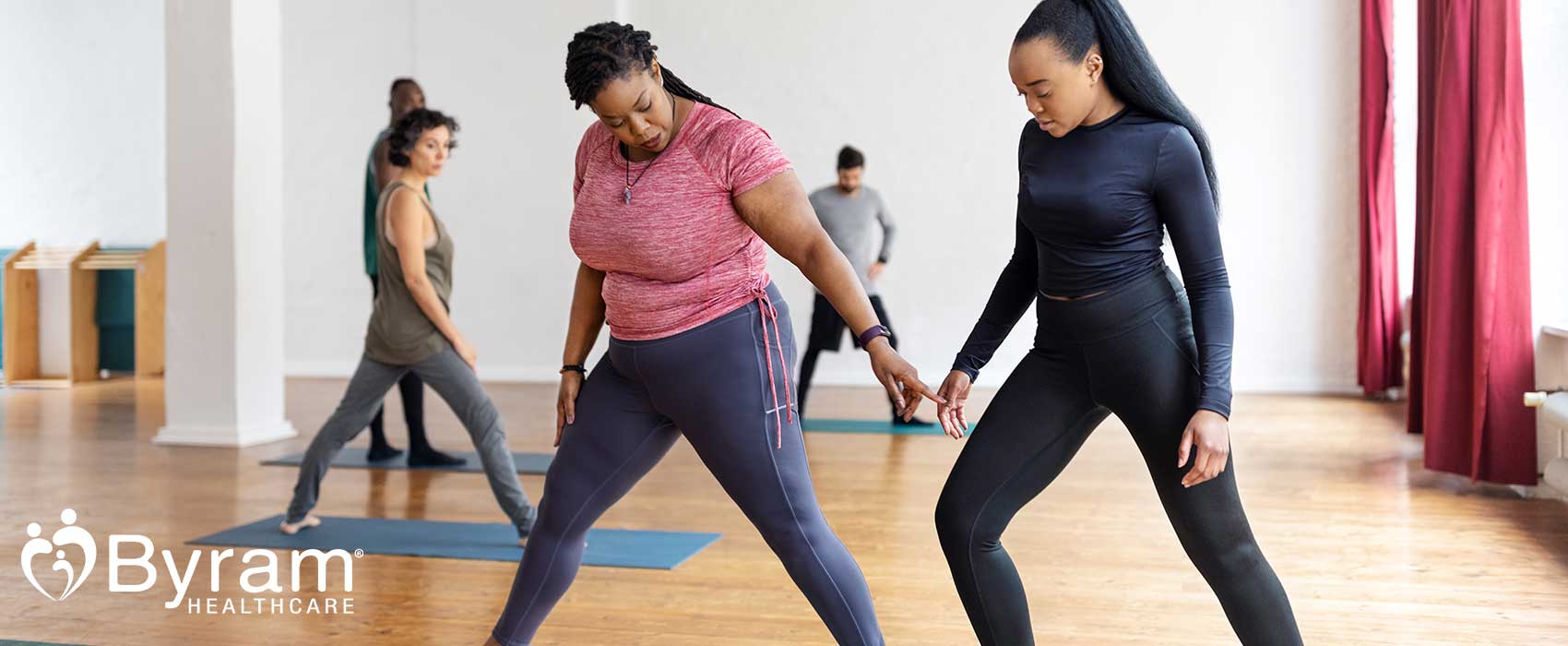
New Year's resolutions are a great opportunity to create new goals and make some positive changes in your life. They can help you focus on areas you want to improve and provide a roadmap for personal growth. They’re also a great way to manage underlying conditions like diabetes so you can prioritize both your short and long-term health. During this process, try to be realistic and choose resolutions that are achievable, but also push you out of your comfort zone a little. Although you may face a few hurdles, the most important thing is to stay committed and keep moving forward. To help you get started, consider some of the following self-care New Year’s resolutions to work towards when living with diabetes.
1. Make a Commitment to Get Regular Exercise
Physical exercise plays an important role in your overall health and vitality. Whether it’s using a structured workout program or a few minor lifestyle changes, there are many ways to incorporate regular exercise into your routine. One of the best ways to motivate yourself to exercise more is to join a gym or fitness studio. Many gyms and studios offer a variety of workouts, including cardio, strength training, and group fitness classes. When you sign up, you may also receive one or more free sessions with a personal trainer. However, you’ll need to actually visit your fitness studio in order to reap the benefits.
If you’d prefer to ease into the gym, consider doing something outdoors. You can go for a hike, bike ride, or even a brisk walk around the neighborhood. You can also use one of the many online resources or apps that offer workout routines that can be done at home with minimal equipment.
To help keep you accountable, try to find a workout buddy. Having a friend to exercise with can help you stay motivated and provide you with opportunities to mix up your routine or step out of your comfort zone.
Regardless of how you move, remember that the most important thing is to find physical activities that you enjoy and that fit into your lifestyle. You should also talk to your doctor prior to starting any new exercise program.
2. Eat a Healthy, Balanced Diet
Eating a healthy diet is a critical part of maintaining overall health, especially if you’re living with diabetes. A healthy diet can improve blood sugar control, help with weight management, reduce the risk of serious complications, and strengthen your outlook on things. Although there are several diabetes-approved diets that you can choose from, if you need to resort to the basics that’s okay too.
Include a variety of vegetables, fruits, and whole grains in each of your meals, as they tend to be higher in fiber and have nutrients that may help regulate your blood sugar levels. Add lean protein sources to each meal such as chicken, beans, fish, or tofu and limit your intake of added sugars, saturated and trans fats, and sodium. If your energy fluctuates throughout the day, try to eat smaller meals more often and always focus on hydrating with water. If you’re struggling to come up with diabetes friendly meal plans or need a little extra help, consider working with a registered dietician.
3. Prioritize Getting Enough Sleep
Although often seen as an afterthought in order to maintain busy schedules or vibrant social lives, sleep is one of the most important factors in self-care. When you get enough sleep (between seven to nine hours a night), you’ll notice an improvement in physical health, mental health, concentration, productivity, memory, and more. Your immune system also gets stronger, and you’ll have more energy throughout the day. When you don’t get enough sleep, your body may have a harder time stabilizing blood glucose levels and diabetes management becomes more difficult. Poor sleep quality can also affect insulin sensitivity and increase the risk of diabetes-related complications.
One of the best ways to make sure you’re getting enough high-quality sleep is to establish a consistent routine and work on creating a sleep-friendly environment. This means working towards going to bed and waking up at the same time, regardless of the day of the week. Try to avoid screens before bedtime and make sure your room is dark, quiet, cool, and comfortable.
4. Set Aside Time Each Day for Relaxation
One of the pillars of self-care is giving yourself enough time to relax and unplug from the rest of the world. Doing so daily can help you recharge, which is important for both your physical and mental health. In fact, when you make time to relax, you’ll notice a reduction in stress, improved sleep quality, and lower blood pressure. Since stress can elevate blood sugar levels, relaxation is crucial for diabetes management.
Some options for relaxation include meditation, yoga, reading, journaling, listening to music, taking a warm bath, spending time in nature, practicing deep breathing, and unplugging from social media.
5. Seek Support When You Need it
Having a supportive network of friends and family is important in life, but many people don’t use it as often as they should. This year, if you’re feeling down, unmotivated, or distressed, seek support from the loved ones in your life. In doing so, you’ll likely find that your mood improves along with your overall feelings of happiness and wellbeing. Keeping in contact with close friends and family has tremendous benefits, even if you aren’t feeling particularly down, so try to prioritize face-to-face interactions over ones online for an extra boost of dopamine.
This is especially important to do if you have diabetes and are feeling symptoms of diabetes distress. The longer diabetes distress continues, the greater the risk of health complications. If you or a loved one are feeling helpless, depressed, or overwhelmed about diabetes management, don’t hesitate to reach out to a mental health professional.
6. Practice Gratitude Daily
Sometimes it’s easy to forget about all of the things to be grateful for in life, so this year make gratitude one of your New Year’s resolutions. Practicing gratitude has been shown to have numerous benefits, including improved mental health, enhanced wellbeing, stronger relationships, increased resilience, and even improved physical health. It can help boost your immune system and lower blood pressure, which are important when living with diabetes.
To practice gratitude, try to set some time aside each day to reflect on the things you’re thankful for. One way to do this is by keeping a gratitude journal. All you need to do is write down a few things you are grateful for each day. These can be big or small, and can include things like good health, supportive friends and family, or the comfort of your pet. You may also want to consider expressing your gratitude to someone you appreciate, either in person or through a thoughtful message or note. The key is to make gratitude a habit and to focus on the positive things in your life on a regular basis. Incorporating a more mindful mentality can further help with this.
7. Adhere to Your Healthcare Plans and Medications
If you have diabetes, it’s important to adhere to your healthcare plan and take any medications as prescribed. By doing so, you can help to keep your blood sugar levels within a healthy range and reduce your risk of developing complications such as heart disease, nerve damage, and kidney damage. Additionally, following your doctor-approved healthcare plan and administering insulin as needed can help to improve your overall quality of life and may allow you to better manage the demands of daily life.
One great way to do this is through ByramConnect™. This is a diabetes digital solution that works to lower patient A1C levels and act as a virtual “coach in your pocket” for improved self-care. It provides tools and guidance to help you analyze and improve daily diabetes self-management with 24/7 real-time feedback and actionable insights.
Another way to ensure you’re following your healthcare plan is to have your glucose monitors and other diabetes management supplies readily available. You can do so through mybyram, a free app for Byram Healthcare account holders available for both iOS and Android operating systems. It’s simple, convenient to use, and available 24/7 for stress-free ordering without having to wait hours for a representative.
Remember that self-care is a journey, not a destination, but diabetes management is something that needs to be done every day. Try to be kind and patient with yourself as you make lifestyle changes. Finding activities that help you feel rested, nourished, and fulfilled to reduce the risk of burn out and always contact your doctor with any questions or concerns. Byram Healthcare carries a wide variety of continuous glucose monitors, diabetes testing strips, and more. Visit our diabetes product guide today or reach out to one of our customer support specialists for more information on diabetes management.




